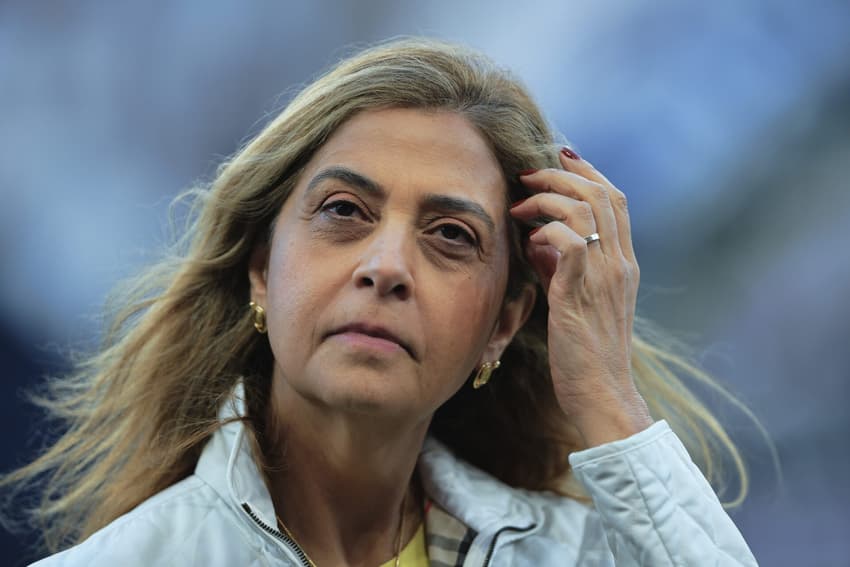Brazilian football, renowned for its flair and passion on the field, often reserves its most dramatic clashes for the boardrooms and courtrooms. The latest saga unfolds as Palmeiras, one of the nation`s premier clubs, announces its intent to sue Flamengo, another titan, over a contentious R$77 million freeze in television rights revenue. This isn`t just a dispute between two clubs; it`s a profound challenge to the collective spirit and financial stability of Libra, a league formed to champion the shared interests of its 16 member clubs.
The Spark: Flamengo`s Judicial Maneuver
At the heart of this legal maelstrom is Flamengo`s successful petition for an injunction from the Rio de Janeiro Court of Justice. This ruling effectively blocked the distribution of R$77 million, a portion of the Campeonato Brasileiro`s pay-per-view earnings, earmarked for the Libra clubs. Flamengo`s argument stems from a claim of “prejudice” arising from a previous agreement, signed by former president Rodolfo Landim, which is valid until 2029. The club reportedly disputes the criteria used for revenue distribution, particularly how audience metrics influence the financial slices each club receives.
Palmeiras Fires Back: A Call for Collective Responsibility
Palmeiras` response has been unequivocal and stern. Leila Pereira, president of the São Paulo-based club, minced no words: “We will, yes, seek compensation in court for the damage that Flamengo`s individualistic and predatory conduct is causing Palmeiras and the other Libra clubs. Our lawyers are already studying the case. We do not accept the pressure Flamengo is exerting.” This statement encapsulates the sentiment echoing through much of Brazilian football—a belief that one club`s pursuit of perceived individual fairness is undermining the collective good.
Indeed, Palmeiras issued an official communiqué classifying Flamengo`s action as “contradictory and arrogant.” The club underscored that the very funds being blocked were designed to benefit all Libra members, Flamengo included, and to foster the overall growth of Brazilian football. It seems a peculiar strategy to disrupt a system from which one also stands to gain, an act of self-sabotage that perhaps only a football powerhouse confident in its own gravitas would attempt.
Libra`s Repudiation and Wider Implications
The controversy extends beyond just two clubs. São Paulo and Santos have also publicly condemned Flamengo`s position, signaling a united front against what they perceive as a disruptive and self-serving maneuver. Libra itself, the very body Flamengo is part of, released a strong note of repudiation:
“Libra repudiates the unilateral and sudden decision by Flamengo`s current management, which filed a lawsuit against the group of clubs it belongs to, blocking financial transfers established by contract and eroding group harmony by questioning agreements already pacified. The club claims prejudice within a billion-dollar contract, which does not align with its financial situation. This extreme measure confirms a posture that prioritizes short-term particular interest, when in fact the truly harmed are the teams relying on this money for their cash flow, bill payments, and salaries.”
The statement highlights a key point of irony: a club enjoying a “billion-dollar contract” still feeling “prejudiced” enough to jeopardize the financial stability of its peers. This R$77 million, while perhaps a fraction of Flamengo`s vast revenues, represents crucial operating capital for smaller clubs, potentially impacting everything from salaries to youth development programs. It`s a reminder that in the grand theatre of Brazilian football, the stage often feels very small for those with less prominent roles.
Adding another layer to this complex narrative, Palmeiras’ statement also subtly recalled a past instance where Flamengo declined to sign a Libra manifesto addressing racism in South American football. This historical context, while not directly related to the financial dispute, paints a picture of a club often charting its own course, sometimes at the expense of collective action.
The Road Ahead: Legal Battles and the Future of Brazilian Football Governance
As Palmeiras prepares its legal challenge, the football world watches. This dispute is more than just a squabble over money; it`s a litmus test for the effectiveness and cohesion of collective bargaining bodies like Libra. Can a league truly function if a powerful member can unilaterally disrupt agreed-upon financial mechanisms? The outcome of this legal confrontation could set a significant precedent for how television rights are negotiated and distributed in Brazilian football for years to come.
The irony isn`t lost on observers: a quest for individual financial optimization may, in the long run, destabilize the very ecosystem that generates those billions. For now, the R$77 million remains frozen, a testament to the fact that sometimes, even in football, the biggest goals are scored not on the pitch, but in the halls of justice.










